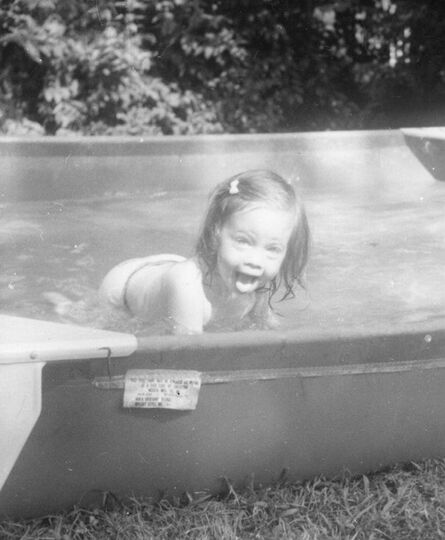 Tessa Bishop Hoggard, a native of Paris, Ky., who now lives in Texas, shares how she stumbled across Clearing the Fog and helped connect me with Jim Bannister. Have you ever experienced a time in your life when the stars were perfectly aligned and from that perfection flowed precious nuggets of gold? It’s as though Sagittarius’ arrow struck its target on the Milky Way, releasing hidden treasures for such a time as this. And what time could that be? It is a time of a ravaging pandemic and a nation fraught with political, economic, and racial turmoil, yet in its midst virtue is found. I’m left pondering how events, encounters, and circumstances were well-positioned to uncover the details of a crime and bring healing for two families. The catalyst for the unfolding events was the 1901 lynching of a black man in Bourbon County, Ky. In 2014 I learned about this story from my mother, the biggest supporter of my genealogy research. Immediately I applied my research skills to finding answers to the “who, what, and why” of this tragedy. My first discovery was the “who.” Two individuals are prominent characters in this story: Mary Lake Barnes Board (the accuser) and George Thomas Carter (the accused). Though I got a good start on my research, a busy life put this project on hold. By 2020, six years later, I had the opportunity to speak with James (Jim) Bannister, great-nephew of the victim. Jim inspired me to revive my research efforts and write a story for him. Within two weeks of restarting my research, I Googled "George Carter Paris KY 1901.” Several pages of results appeared, but one result was promising: a Murky Press blog that included an entry titled “Time Stands Still” dated 11/30/2019. Its author stated that her grandfather “spent a lifetime coming to grips with the perverted justice he witnessed as an eight-year-old boy in Paris, Ky.” My interest was piqued, and I reached out to the author for any information that her grandfather may have shared. On June 17, 2020, the author replied that she didn’t have the specific information I was looking for; however, within her words were nuggets of gold: “A friend of mine was doing some genealogical research for me and, upon searching for information about my great-grandmother Mary Lake Barnes Board, initially stumbled across a story about the lynching in a California newspaper.” Whoaaaa!!!! This is incredible! Do you mean to tell me I’m communicating with the great-granddaughter of Mary Lake Barnes Board, the accuser of George Carter??? I sat motionless, telling myself to breathe, and trying to wrap my brain around the author’s response. What are the chances of encountering a close relative of an 1800s Bourbon County family that you’re researching? My only response to Sallie Showalter was, “May I now call you on your cell?” Since that momentous call, Sallie and I have exchanged numerous emails and enjoyed many telephone conversations. I’m continually blessed by her kind, fierce, and generous spirit as well as her beautiful writing/editing skills. The providential encounters with Jim and Sallie led to their now well-publicized meeting at the Hopewell Museum in July 2020 in which they discussed their link to the 1901 crime as well as its impact on their families. A 120-year-old crime was laid bare and two individuals exemplified the meaning of courage and forgiveness for not only Bourbon County, Ky., but a strife-ridden nation. Ahhhhhhh, behold the golden nuggets that radiate like diamonds within the mighty and vast universe for such a time as this!
3 Comments
 I was a pistol from the minute I was born. Or even before. I was a pistol from the minute I was born. Or even before. “If you had been a boy, we planned to name you Lazarus.” My mother told me that story over and over. I was never sure whether I believed her. Would she really have dared to give me such an unconventional name, a name with such a specific Biblical story associated with it? I was a serious Sunday School student and understood the weight that name would have carried. Thank goodness I was a girl. “The doctors told me you were dead,” my mother would continue, usually after my unrelenting energy and general rambunctiousness had worn her down. While pregnant with me, my mother had been advised that she was carrying a dead fetus in her womb. That presented enormous risk for her, and her physicians felt they had to take extraordinary steps to save her life. But it was 1959. And a doctor could not legally “take” a baby before birth. So a courageous and determined Dr. George Heels admitted my mother to Mount Auburn Hospital in Cambridge, Mass.—for an appendectomy. My mother was never convinced that any of this was necessary. Although the doctor had not been able to detect a fetal heartbeat during her recent appointments, she knew I was kicking and moving around. She knew she wasn’t carrying dead weight. She protested vehemently when he tried to tell her otherwise. My mother had already successfully carried one baby to term. She had experienced the stillbirth of another, and the agonizing death of yet another shortly after his birth. Her life had hung in the balance both times. She was no novice. “When they wheeled me into the surgery prep room before my appendectomy,” my mother would explain to me yet again, “Dr. Heels gently laid his stethoscope on my abdomen one last time. This time you kicked the stethoscope out of his hand. You finally proved to him that I was right. I knew you were fine all along.” I expect that nearly every adult woman has a story of a doctor who didn’t believe her, who minimized her complaints, who explained impatiently, in a condescending manner, why he (in that era they were usually men) was right and she was mistaken about her own body and the symptoms she was experiencing. It still happens today, of course. It is at the root of our ongoing discussions about whether women should retain control over their own health and their own bodies. In January 1973, when Roe v. Wade changed the law of this land, I was 13 years old. I had heard my mother’s personal story many times by this point. I had heard her share details of the suffering and the horror and the deaths of women who had sought “back-alley” abortions, or who had tried some granny’s remedy to terminate a pregnancy. She was a fierce supporter of legal abortion. She was a fierce supporter of women knowing their own bodies and making their own decisions. Sadly, it’s time for all of us once again to drag these stories back out in the open. Sen. Gary Peters of Michigan recognized that. This week, he shared the painful story of his first wife’s abortion, a procedure that probably saved her life. As Peters said, “It's a story of how gut-wrenching and complicated decisions can be related to reproductive health." Many women, many families know the importance of having this procedure available when needed. My mother’s story ended with an unexpected twist. She and my dad became close friends of Dr. Heels and his wife, Vera. They socialized and traveled together. It was as if helping my parents through a series of traumas connected the two families emotionally. And that’s what we need to do again now. We need to recognize the shared humanity in all of our stories. The shared pain. The shared hope. We need to ensure that hope is available for women who find themselves in life-threatening or life-altering situations that they cannot endure. We need to trust the women when they know it is so.  This week I’m offering something completely different. Friday night, after trying—fruitlessly—to keep up with the news relating to the COVID-19 cases swirling among our government’s highest officials, I woke in the middle of the night with the following words running through my brain. I finally got out of bed and wrote them down. You will see, clearly, that I have no training as a poet. I know nothing about proper forms or meter or rhyme schemes. So I hope you’ll read this as my nocturnal wordplay, an example of what happens when my subconscious wrests control from my conscious thought. I have not altered what I captured during those feverish moments. I have not allowed subsequent news or insights to inflect these thoughts. I offer this simply as one citizen’s subliminal attempts to make sense of the harrowing world we live in. As the Dominoes FallI wake up and wonder:
Was it all a dream? This fever-pitched Swampiness holed up inside my head For what seems like millennia But was only long enough To topple democracies And eradicate futures and pasts, Fury and white-hot hate Scorching our throats and Trampling our dignity Until one by one they started to fall, Hubris humbled by truth, Surrendered to a force So tiny it arrived Undetected by the Armies forming in our streets, Long guns tossed over shoulders, Chants rending the night, A force too subtle for their Rigid minds, too potent for their Star Wars defense. We had thought it a scourge, Nature doing battle against Man’s unconscionable crimes. As we watched helplessly Thousands succumb—a million-- Innocents lost, Our heroes, our warriors, Our suckers Who shared this precious gift and Delivered us, our nation, From certain death. |
Details
Archives
June 2023
Categories
All
|


 RSS Feed
RSS Feed